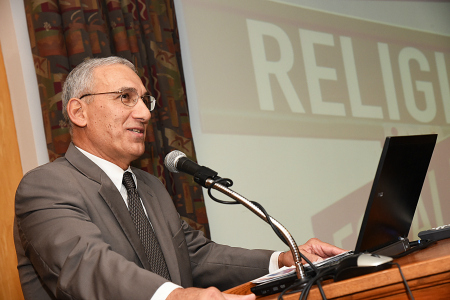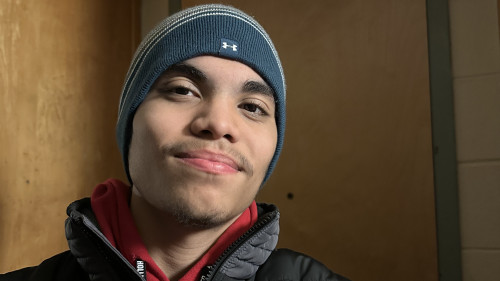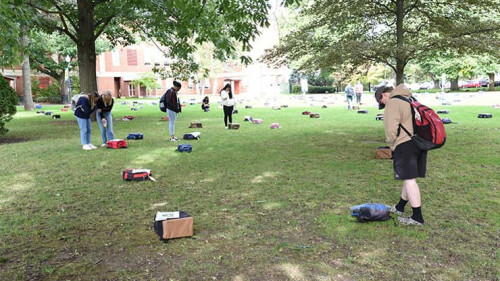

Aidan Glynn '17
Siena College kicked off their annual Constitution Day on September 21 by posing a big question, “Religious Liberty: Fundamental Right or a Nuisance?” This year’s keynote speaker, the renowned Vincent M. Bonventre, J.D., Ph.D., was ready to address this question head on.
Bonventre is the Justice Robert H. Jackson Distinguished Professor of Law at Albany Law School. He teaches, comments and advises on courts, judges and various areas of law. He has authored numerous works on the judicial process, the Supreme Court, Criminal Law and civil liberties.
The ceremony kicked off with a performance of the Star Spangled Banner by the Siena Chamber Singers, and a few opening remarks from Siena’s Vice President of Academic Affairs, Margaret Madden, Ph.D. Leonard Cutler, Ph.D., professor of political science and director of the Center for Study of Government and Politics at Siena, gave a heartfelt introduction of his longtime friend, Bonventre.
Bonventre jumped into his speech by bringing the afternoon's topic to the forefront, whether or not religious liberty in the United States is a fundamental right or a nuisance. Bonventre himself believes that, “The fact of the matter is, it is both.”
As an expert in Constitutional Law, Bonventre explained through a detailed history of our nation’s religious freedom court cases how misleading the Supreme Court can be in regards to religious freedom. He began by laying out various crucial court cases throughout history where the Supreme Court ruled in favor of free exercise of religious freedom, such as Reynolds v. United States in 1879, Braunfeld v. Brown in 1961, and Wisconsin v. Yoder in 1972. Bonventre explained how in these, as well as in many other cases, the Supreme Court always ruled that free exercise of religion may not be burdened except for a “compelling” purpose and in the “least restrictive” way. This remained law until Oregon v. Smith in 1990.
In this case the Supreme Court ruled that Oregon could deny unemployment benefits to someone fired from a job for illegally using peyote during a religious ceremony. Bonventre argues that the court ruled against this free exercise of religion possibly due in part to a predisposition toward a Native American religious tradition because of its foreignism to the Court.
Since this ruling Bonventre has been involved in various crucial court cases where he has hoped to come to a better and more fundamental resolution. The professor remains hard at work and not overly critical of the Supreme Court. Instead, he simply explained how he will continue to seek for truth in Constitutional Law, and advised to, “Pursue truth wherever it is going to take you.”

